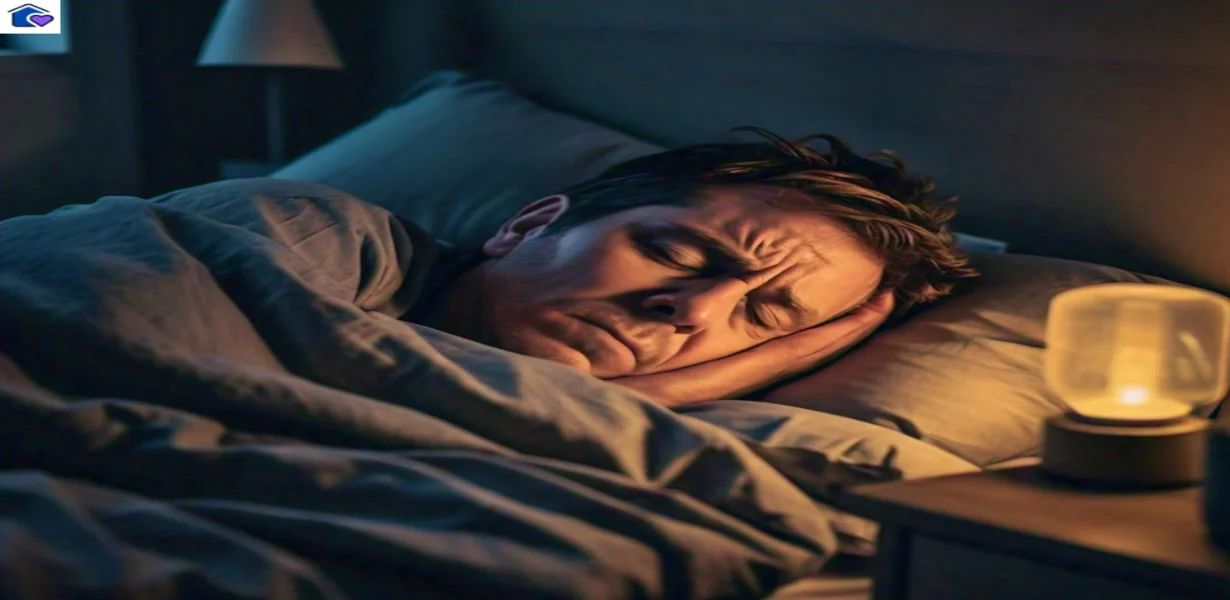Does Anxiety Make Funny Feeling in Your Head?
A common mental health illness called anxiety can cause a wide range of emotional and physical symptoms. One notable but frequently disregarded symptom is a strange feeling in the brain that is frequently referred to as a “funny feeling.” This article explores the complex relationship between this peculiar head sensation and anxiety, including its sources, traits, and possible management approaches.
Understanding the Funny Feeling in Head
Anxiety can upset the delicate balance of the human brain, which is an immensely complicated organ. Increased anxiety can set off a series of physiological reactions, such as alterations in blood flow, neurotransmitter activity, and tense muscles. These changes may be a factor in the emergence of an odd and disturbing headache sensation.
People who experience this strange sensation frequently characterize it as pressure, tightness, or heaviness. Some describe it as a throbbing or dull discomfort, while others relate it to a fog hanging over their head. Identifying a single, accurate description might be difficult because the sensation’s nature and intensity can differ greatly from person to person.
The Science Behind the Funny Feeling
To comprehend the underlying mechanisms of the funny feeling in head associated with anxiety, it is essential to explore the physiological changes that occur during anxious states.
- Increased Blood Flow: A feeling of pressure or fullness can be brought on by an increase in blood flow to the brain brought on by anxiety. This increased blood flow may also be a factor in headaches, which may intensify the queasy sensation all around.
- Muscle Tension: Tension in the muscles of the head and neck is a common sign of anxiety. This tension might exacerbate the odd feeling by producing a dull pain or a tightness in the body.
- Neurotransmitter Imbalance: Neurotransmitter imbalances, including those in norepinephrine and serotonin, are linked to anxiety. These chemical messengers are essential for controlling mood, and when they are dysregulated, it can lead to the emergence of strange head feelings.
- Hyper vigilance: Anxiety can increase a person’s sensitivity to physical feelings, particularly those that come from the head. The odd funny feeling in your head may be perceived more strongly and distressingly as a result of this hypervigilance.
The Impact of Anxiety on Cognitive Function
In addition to the physical symptoms, anxiety can also affect one’s ability to think clearly, which adds to the overall feeling of having a funny feeling in the head. High levels of anxiety make it difficult to focus, concentrate, and efficiently process information. This fog of thought can make one feel confused and disoriented, which exacerbates the discomfort.
Anxiety can also lead to intrusive worries and thoughts, which can take up mental space and divert focus from the here and now. This fixation on unfavorable ideas can intensify the queasy sensation in the head, starting a vicious cycle of unease and anxiety.
Coping with the Funny Feeling

Although having a weird feeling in your mind can be upsetting, there are ways to lessen its effects. It’s crucial to keep in mind that every person’s experience with anxiety is different, so it could take some trial and error to figure out what works best for you.
Mindfulness and Relaxation Techniques: Techniques like progressive muscle relaxation, deep breathing, and meditation can help lower anxiety levels and ease the queasy feeling in the head. These methods mitigate the negative effects of worry on the body and mind by encouraging calmness and concentration.
Regular Exercise: Being physically active is a great way to control anxiety. Frequent exercise promotes the release of endorphins, which improve mood. Exercise can also ease tense muscles and enhance general physical well-being.
Healthy Lifestyle Habits: Maintaining healthy brain function and lowering symptoms of anxiety require making sleep, diet, and water a priority. Maintaining hydration, getting enough sleep, and eating a balanced diet can all assist to enhance general wellbeing and ease the queasy feeling in the brain.
Cognitive-Behavioral Therapy (CBT): Cognitive Behavioral Therapy (CBT) is a type of psychotherapy that aims to recognize and change maladaptive thought patterns and behaviors. Cognitive behavioral therapy (CBT) has been shown to help lower the frequency and severity of irrational ideas by questioning and organizing them.
Medication: Medication may be suggested in certain situations as a component of an all-encompassing anxiety treatment program. Anti-anxiety drugs can help control severe symptoms including funny feeling in your head and enhance general well-being.
Seeking Professional Help
You must get expert assistance if the strange funny feeling in your mind is seriously interfering with your everyday activities and giving you distress. An expert in mental health may offer a thorough assessment, identify any underlying anxiety issues, and create a customized treatment strategy.
Recall that you are not the only one who gets a funny feeling in your brain as a result of nervousness. This condition is problematic for many people, but there is a good remedy for it. You may control your symptoms and enhance your general wellbeing by realizing the link between anxiety and this peculiar feeling.
The Impact of Anxiety on Sensory Perception
A strange funny feeling in the head frequently corresponds with altered sensory experience. Anxiety can increase sensitivity to stimuli, which can distort or magnify ordinary experiences. An odd or bizarre feeling in the head may be attributed to this increased awareness.
Anxious people, for instance, may become more aware of their blood flow or heartbeat, which can cause them to feel as though their heads are pressured or full. Furthermore, worry can intensify sensations of light, sound, or touch, resulting in a confusing and overpowering sensory experience.
Anxiety and Dizziness: A Common Connection
Another common symptom of anxiety is dizziness, which can also add to the overall strange funny feeling in the brain. Increased anxiety can lead to physiological changes including a faster heartbeat and less blood flowing to the brain. Feelings of imbalance, vertigo, or lightheadedness may result from several conditions.
It is noteworthy that vertigo may also indicate the presence of other medical disorders. It’s critical to speak with a healthcare provider if your dizziness is severe or chronic in order to rule out any underlying medical issues.
The Role of Hyperventilation in the Funny Feeling
Rapid, shallow breathing, or hyperventilation, is frequently linked to anxiety and can exacerbate a funny feeling in the head. Your body’s carbon dioxide levels drop during hyperventilation, which alters blood pH and blood flow. Feelings of tingling, numbness, lightheadedness, and overall disorientation might be brought on by these physiological changes.
Slow, deep breathing exercises can assist re-establish regular breathing patterns and lessen the severity of the queasy feeling in the brain, which are two ways in which hyperventilation can be countered.
Anxiety and Headaches: A Frequent Pairing
A common complaint among anxious people is headaches. It might be challenging to differentiate between headache symptoms and a queasy feeling in the head because they frequently coexist. Anxiety is commonly linked to tension headaches, which are characterized by a dull, agonizing pain in the head and neck.
While over-the-counter painkillers can offer short-term headache relief, treating the underlying worry is crucial to preventing headache recurrence. People can frequently see a decrease in the frequency and intensity of their headaches by controlling their worry.
The Emotional Toll of the Funny Feeling
The odd feeling in the head can affect one’s emotions deeply. It could make you feel uneasy, afraid, or unsure. Worries about the sensation’s underlying source might make people more anxious and create a vicious circle of misery.
It is important to understand that, more often than not, a weird feeling in the brain is not a dangerous medical disease, but rather an anxious sign. People can start to question negative ideas and create coping mechanisms by realizing the link between worry and this strange feeling.
Seeking Support and Finding Relief
It’s imperative to get expert assistance if the strange feeling in your mind is seriously interfering with your everyday activities and causing you distress. An expert in mental health can offer a thorough evaluation, identify any underlying anxiety issues, and create a customized treatment strategy.
A variety of self-help techniques can be helpful in addition to counselling. These consist of stress reduction methods, regular exercise, a balanced diet, enough sleep, and relaxation techniques. Through the integration of professional help and self-care practices, people can effectively control their delusions and enhance their general state of well-being..
It’s not just you that is dealing with this bothersome ailment. Many sufferers of anxiety get a queasy feeling in their heads. It is possible to overcome this obstacle and lead a full life with the correct techniques and support.
The Impact of Anxiety on Sleep and the Funny Feeling

Anxious people frequently report having trouble sleeping. Anxiety and disturbed sleep can spiral out of control when there is insufficient sleep, which can intensify the queasy feeling in the head. Your body is more sensitive to stress and increased sensitivity to sensations when you’re sleepy. This may heighten the sense of the weird feeling and make it harder to control.
Making good sleep hygiene a priority is essential for people who experience anxiety and a queasy feeling in their heads. Anxiety symptoms can be lessened and the quality of sleep can be enhanced by reducing screen time before bed, making a calm sleep environment, and establishing a regular sleep schedule.
The Funny Feeling in Head and Panic Attacks
For some people, the queasy feeling in the head may indicate an impending panic attack. Rapid increases in anxiety can set off a chain reaction of physical symptoms, such as heart palpitations, dizziness, shortness of breath, and a weird feeling. There may be a sense of impending doom brought on by these overwhelming symptoms.
To help control symptoms and stop escalation, it’s critical to master grounding exercises and relaxation techniques if you experience panic attacks. Getting expert advice from a therapist can also be very helpful in learning coping mechanisms and comprehending the underlying causes of panic episodes.
The Funny Feeling in Head and Body Dysmorphic Disorder (BDD)
The strange feeling in your head could occasionally be linked to body dysmorphic disorder (BDD), a psychiatric illness marked by obsession with perceived defects in physical appearance. BDD sufferers may fixate excessively on their head or face, which can cause them to become hyper aware of their surroundings and mistakenly believe that they look different from others
It’s critical to get expert assistance if you think you could be suffering from BDD symptoms. BDD can be effectively managed with therapy and medication, which can also help reduce related distress, such as the queasy feeling in the head.
The Funny Feeling in Head and Other Medical Conditions
Even while anxiety is frequently the main culprit behind a queasy feeling in the head, it’s important to rule out other possible medical concerns. Unusual head feelings can also be caused by migraines, inner ear issues, or certain neurological conditions.
It is important to see a healthcare provider for a thorough assessment if you have severe or persistent symptoms. They are able to identify the underlying reason for your symptoms and suggest the best course of action.
Conclusion
Though it can be a disturbing sign of anxiousness, the weird feeling in your head is something that can be controlled. You may lessen the effect that worry has on your life by realising the link between it and this strange feeling.
For the odd feeling in the head to go away, self-care techniques combined with professional supervision are essential. Recall that asking for help is a sign of strength rather than weakness. You can become better overall and find relief with perseverance and patience.

There are additional articles to read.
There are some more articles based on different topics regarding family members and other home organizing issues; if you want to read them, then visit actual home guide, and for more information about invest ideas you can visit invest ideas.
